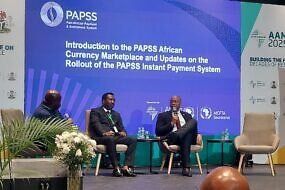Flutterwave, Yellow Card, and Onafriq—three major players in Africa’s fintech ecosystem—have joined Circle’s newly launched Circle Payments Network (CPN), in a bid to revolutionise cross-border payments across the continent. Circle, the company behind the USDC stablecoin, launched CPN in 2024 to offer real-time, low-cost international settlements through blockchain technology.
The move underscores Africa’s growing stake in global financial innovation. These partnerships mark a pivotal step toward tackling the long-standing inefficiencies of cross-border payments: from sky-high fees to delays caused by incompatible banking systems. According to the World Bank, sending money internationally still costs over 6% on average, with Sub-Saharan Africa bearing the highest burden.
What CPN Means for Africa
Circle’s blockchain-native infrastructure connects banks, digital wallets, and fintechs to enable the real-time movement of stablecoins such as USDC and EURC. It offers a promising alternative to outdated systems bogged down by intermediaries and red tape. For African companies like Flutterwave, Yellow Card, and Onafriq, the platform isn’t just another payment channel—it’s a gateway to scalable, borderless finance.
Flutterwave, which operates in over 30 African countries, plans to use CPN to streamline B2B payments and cross-border commerce. Faster transaction speeds, reduced fees, and global accessibility are core benefits the company sees in the stablecoin network.
Yellow Card, a crypto exchange serving 20+ African countries, plays a critical role in bridging stablecoins with local currencies. By acting as an on- and off-ramp between fiat and crypto, it gives individuals and businesses the option to save and transact using digital dollars.
Onafriq—formerly MFS Africa—is bringing CPN’s functionality to the grassroots. With connections to more than 500 million mobile wallets, Onafriq’s involvement expands the network’s reach into rural and low-income areas that traditional banks often leave out.
“This partnership allows millions to participate in a digital-first global economy,” Circle stated, highlighting the growing momentum behind stablecoin adoption.
More Than Just Transfers
CPN is not merely a transaction tool—it’s also a programmable platform. Developers and financial institutions can build apps, smart contracts, and payment flows directly onto the network. This flexibility could enable African startups to design solutions ranging from international payroll systems to decentralised remittance platforms.
Eligibility for participation is strict. All three African fintechs have cleared Circle’s requirements, which include licensing, cybersecurity measures, and anti-money laundering (AML) compliance. Their inclusion sets a new benchmark for emerging market players.
Since CPN’s launch, more than 30 companies worldwide have signed on, including Standard Chartered, Deutsche Bank, and fintech firms like Fireblocks and dLocal. The inclusion of African startups signals a growing recognition of the continent’s fintech leadership and innovation potential.
With this partnership, Flutterwave, Yellow Card, and Onafriq are not just beneficiaries—they’re helping shape how stablecoins are integrated into the broader financial ecosystem.
- Luno Launches Crypto Staking in Nigeria
- PAPSS Launches African Currency Marketplace
- Seychelles Still Dominates Blockchain Funding in Africa
- Binance Exec Quits Months After Nigerian Ordeal
- Zhao Suggests Dark Pool DEX to Curb Crypto Manipulation
- Blockchain.com to Expand into Africa, Open Office in Nigeria













No Comments